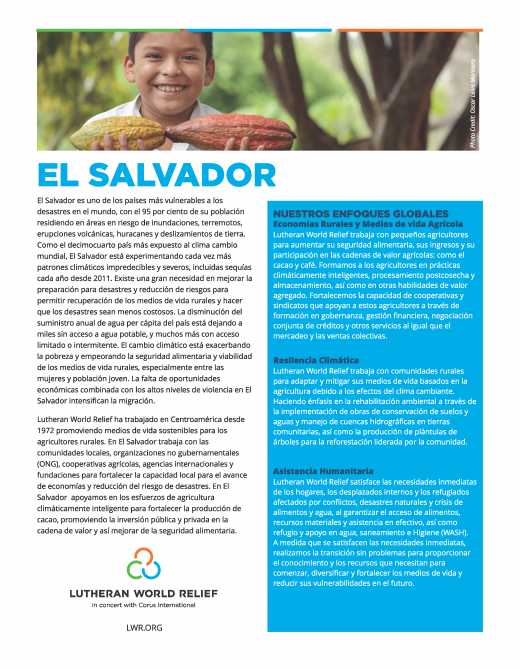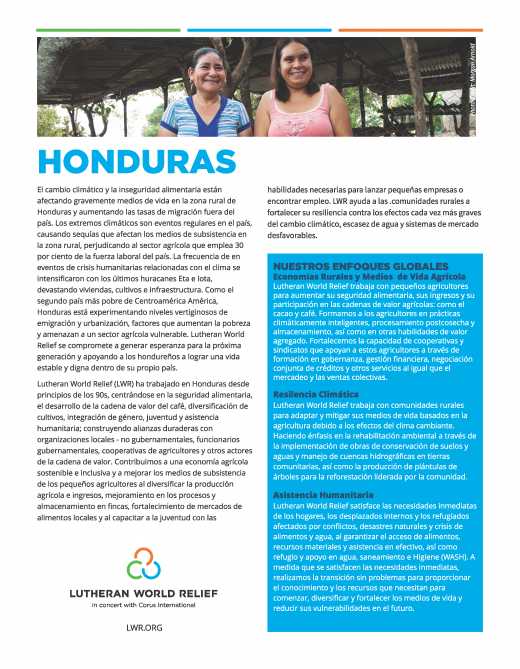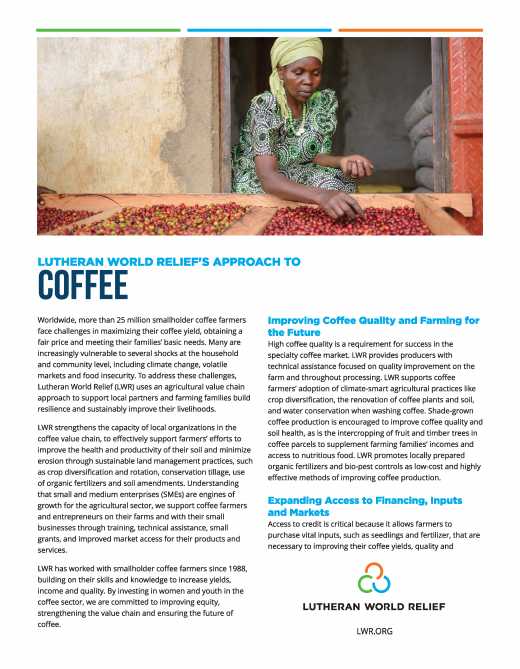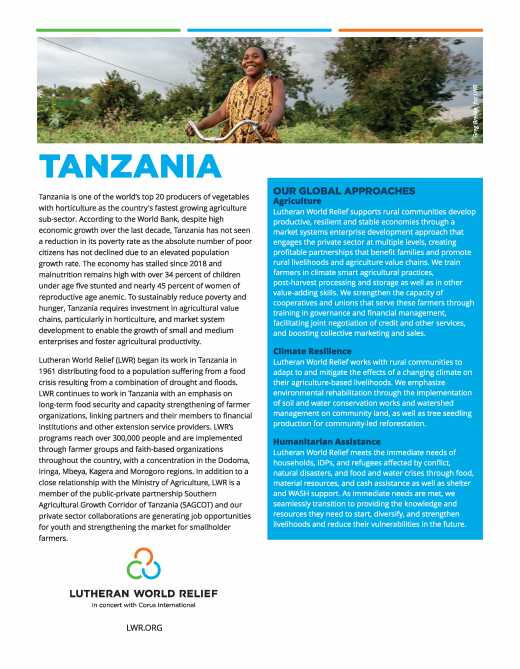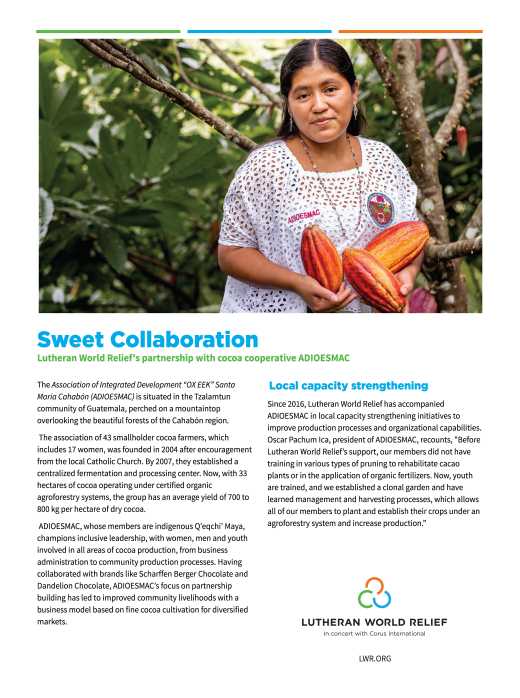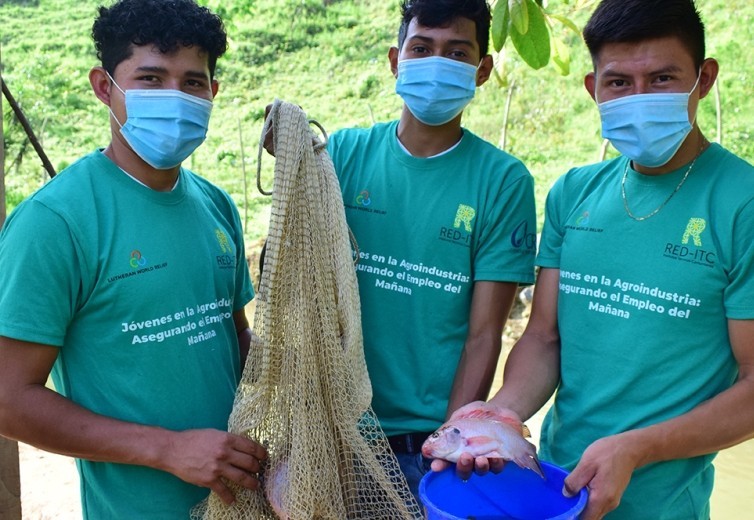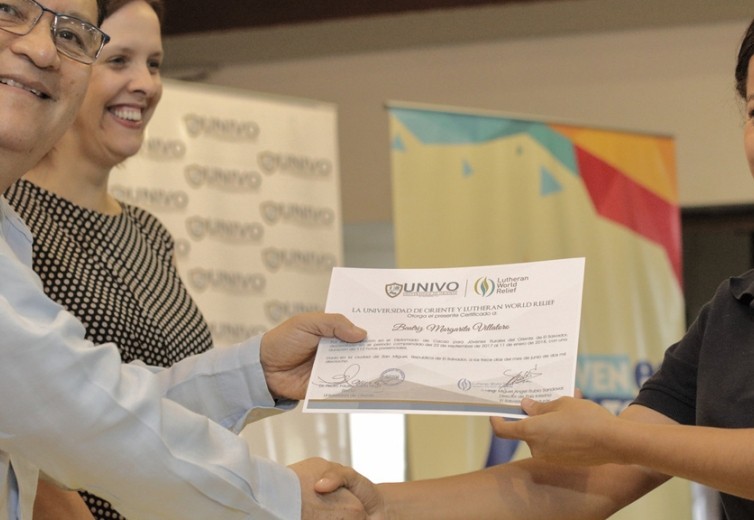The Sustainable Enterprises for Equitable Development (SEED) project in Uganda supports youth entrepreneurs in establishing small agriculture input businesses in rural communities, providing local farmers with inputs such as seeds, fertilizers, and pesticides. The certified youth extension agents also offer services to local farmers, including chemical application, harvest and processing, and collective marketing.
Lutheran World Relief recognizes the importance of implementing positive youth development programming that directly addresses both under-employment and unemployment, while also providing youth an opportunity to engage in relevant agriculture value chains.
Young men and women need to be given equal opportunity to earn a predictable income that provides enough for their basic needs. Equitable access to sustainable income and information technologies for youth is a key objective of our continuing work towards building fair and profitable livelihoods.
Today there are nearly 2 billion people between the ages of 12 and 24 worldwide, the largest number in recorded history. About nine out of 10 of these young people live in less developed countries. The need to address the needs of youth couldn’t be clearer.
When youth are empowered to fully engage in productive economic activity and decision-making at the household, community, and government level, their contributions have the potential to exponentially grow their local economies. Societies with greater equity and rural employment opportunities for youth experience higher agricultural productivity, improved food security, and more robust development in general.
Lutheran World Relief is committed to promoting youth in a variety of ways in our programs, including:
- Looking beyond on-farm interventions to processing and enterprise opportunities
- Conducting both gender and youth assessments early in the design phase of new projects to ensure that they adequately respond to needs and desires of the target project participants.
- Ensuring that youth projects are aligned with market demands to ensure long-term income generation for the skills in which they are being trained
- Providing technical and transferrable skills (life skills and other “soft skills,” basic skills- literacy, functional numeracy, financial literacy, work readiness, etc.)
- Providing on-going training to Lutheran World Relief staff in HQ and in the field on gender and youth integration
Lutheran World Relief Youth Initiatives
-
Uganda
- El Salvador
- Indonesia
- El Salvador
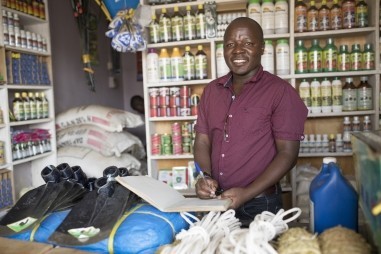
In El Salvador, where young people face daily dangers of violent gang activity and intense pressures to migrate, Lutheran World Relief launched a diploma program designed to prepare young people to be the next generation of entrepreneurs in the country’s burgeoning cocoa industry. The Diploma in Cocoa Management program — offered at the Universidad de Oriente, known locally as UNIVO — integrates training in cocoa cultivation, business management and life skills. More than 100 students have graduated from the program.
In Indonesia, we are helping young people to see coffee production as a viable profession through specialized training in both on-farm management and off-farm entrepreneurship in the profitable Indonesian coffee industry. The Beyond-the-Farm entrepreneurial opportunities include helping to operate a café in various roles (barista, roaster, quality grader, managerial and hospitality), selling roasted high-quality beans to local markets, hotels or other potential buyers, and the potential for developing agritourism.



